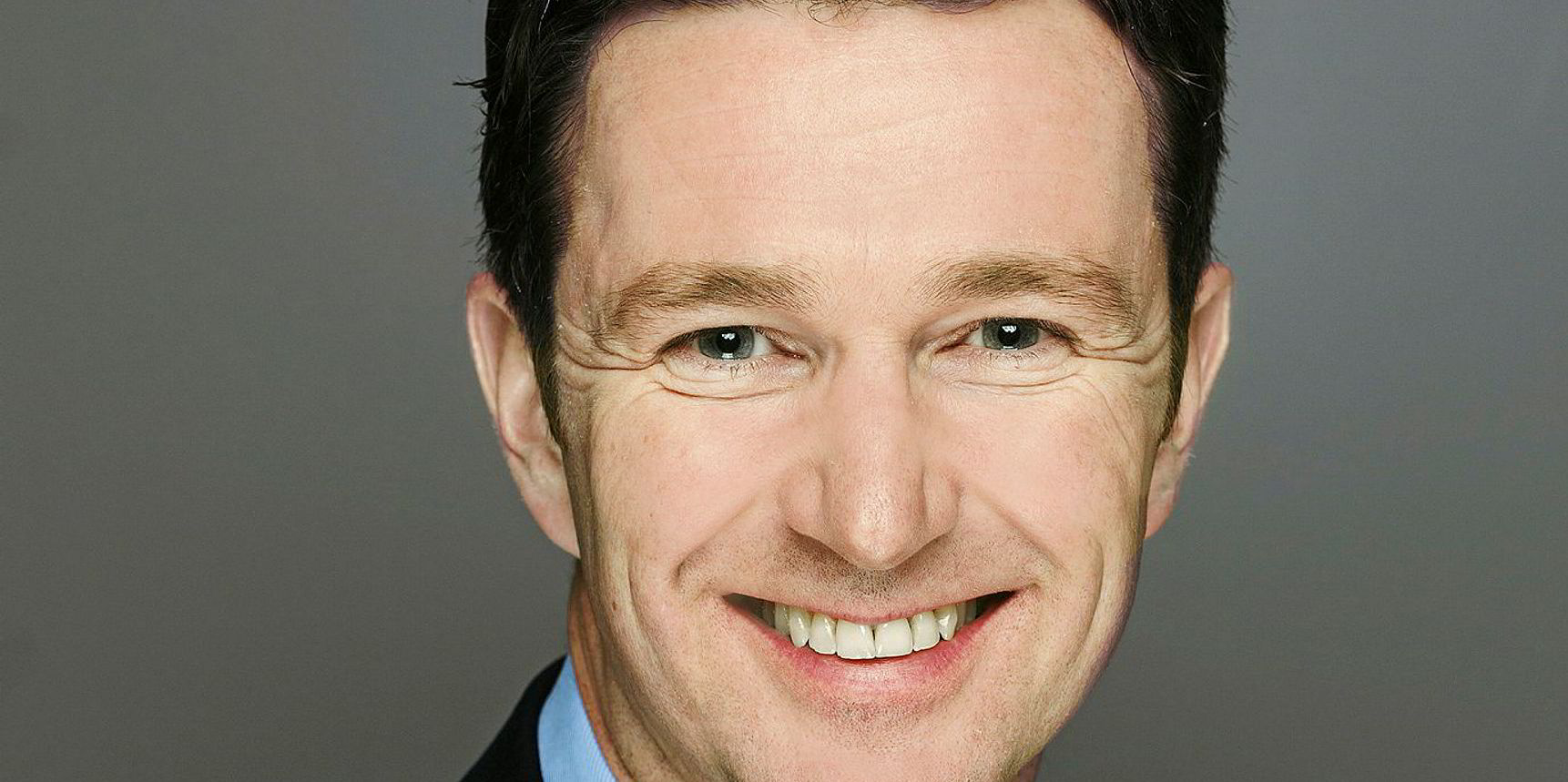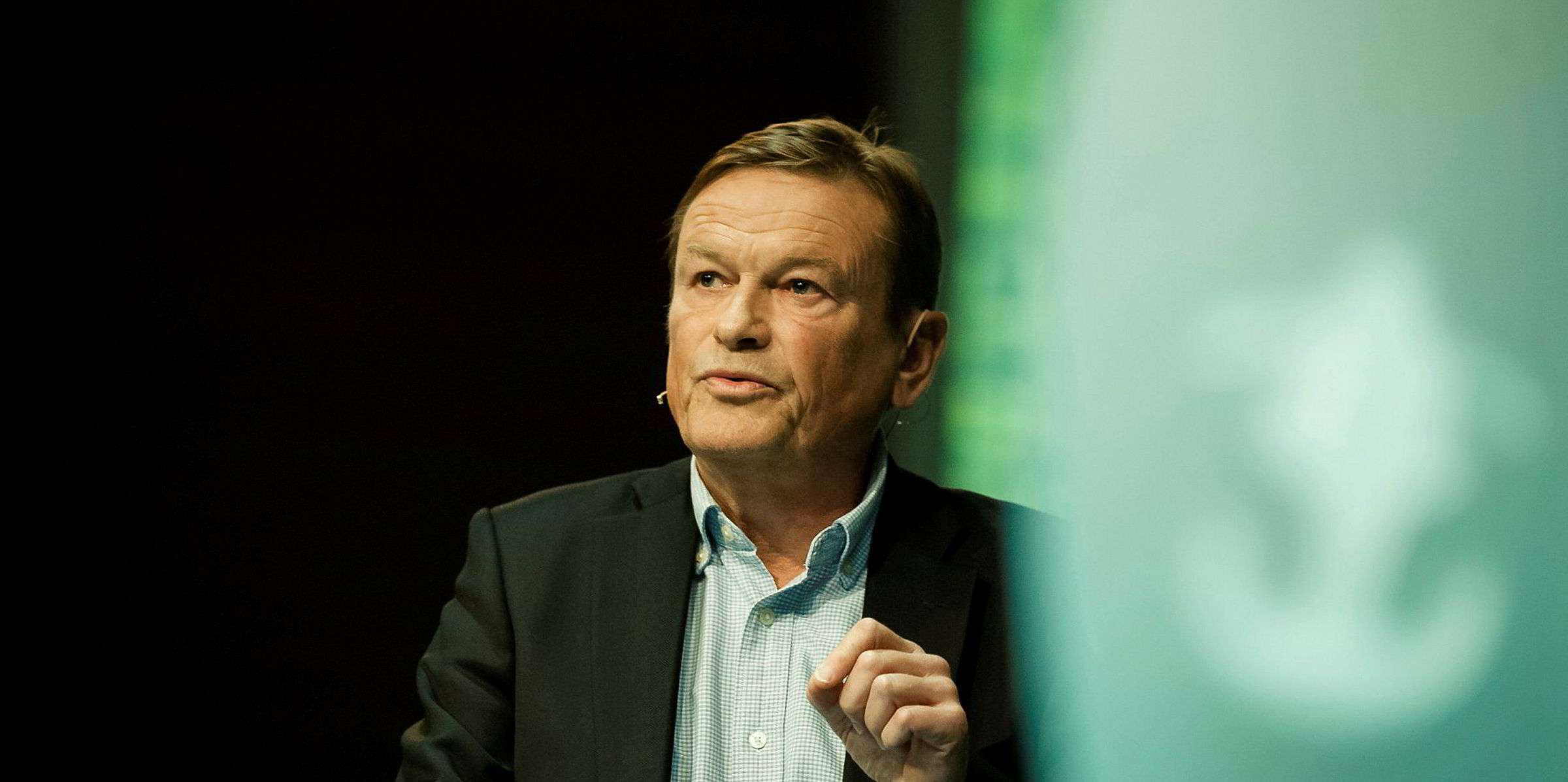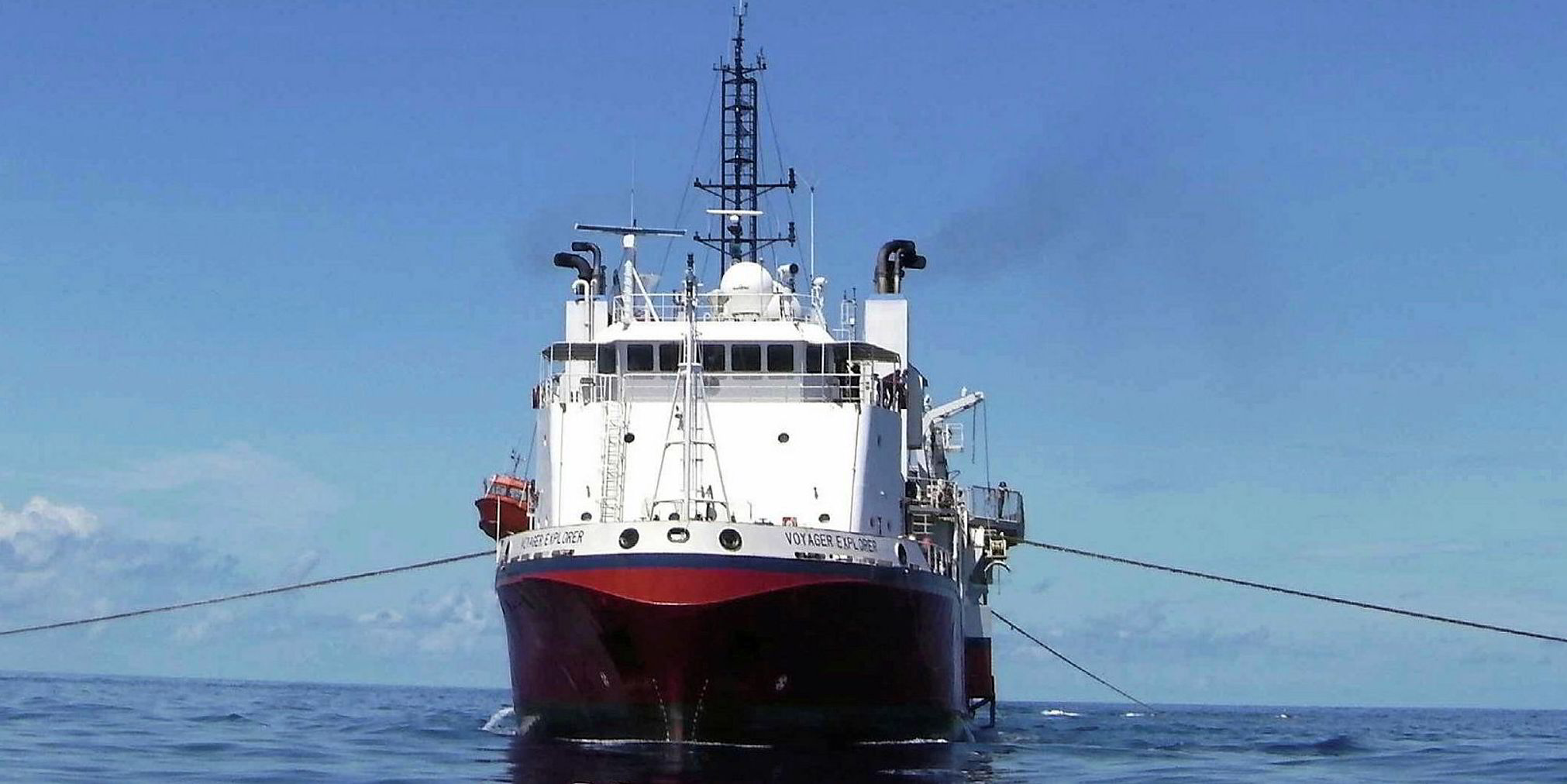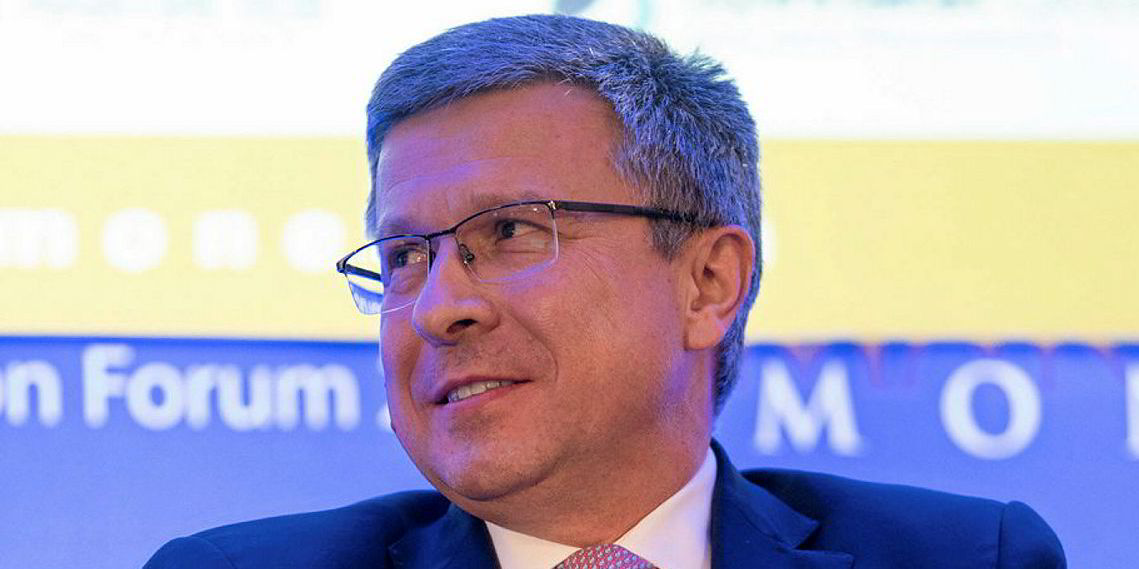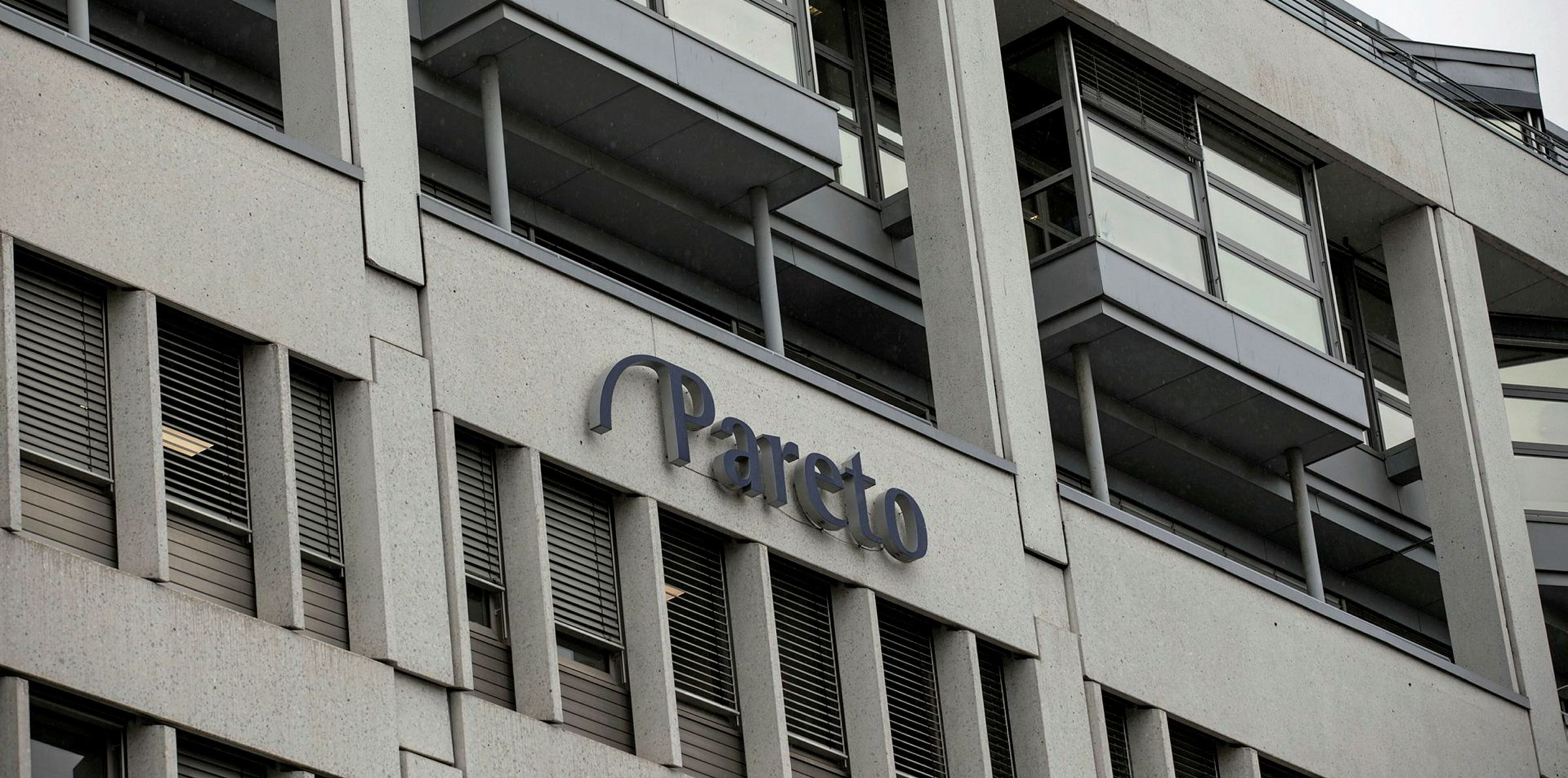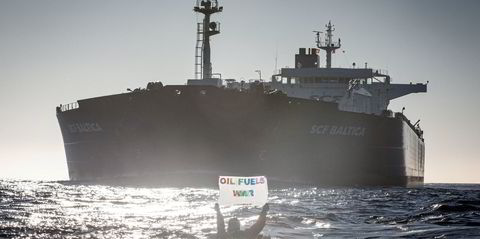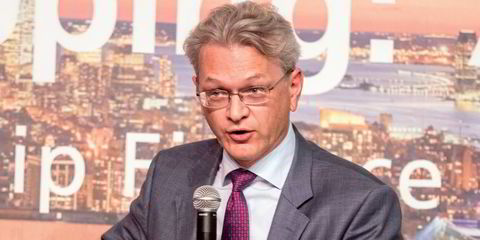PGS has begun negotiations with banks to push back debt payments in an effort to preserve liquidity as the slump in offshore oil exploration continues to clobber seismic survey vessel utilisation.
The Norwegian company disclosed the talks as Goldman Sachs emerged as one of its largest shareholders.
Chief executive Rune Olav Pedersen said on Thursday that the seismic vessel owner is in talks with banks to extend the maturity of a $135m step down in its $350m credit facility. The partial maturity on the facility, which is fully drawn, is scheduled to take place in September.
Pedersen also said on Thursday that the company has launched talks with other lenders to secure an amortisation holiday on loans.
"Resetting our cost base and reducing capital expenditures to a minimum is necessary to preserve liquidity and navigate the challenging market environment, both operationally and financially," the executive said.
The negotiations come at a critical time. While PGS is optimistic it will reach agreements with the lenders, it raised the threat of loan defaults if it cannot push back its repayment profile.
"If unsuccessful, the company may become unable to settle maturities or amortisation on the agreed payment dates, or breach a financial covenant for the RCF [revolving credit facility]. This would represent a default under the relevant facility," the company said on page 15 of a 25-page quarterly report.
The company would then need to reach a standstill agreement or covenant waiver to prevent defaults on other loans.
PGS revealed the bank talks as the Oslo-listed company reported a $111m bottom-line loss, which more than doubled the $48.9m in red ink reported a year earlier.
Revenue slump
PGS reported seismic segment revenue of nearly $139m, down from $216m in the same quarter of 2019.
Under International Financial Reporting Standards, which do not include PGS earnings from as-yet uncompleted multiclient work, the company's revenue sank to $90.3m in the second quarter, from $192m a year earlier.
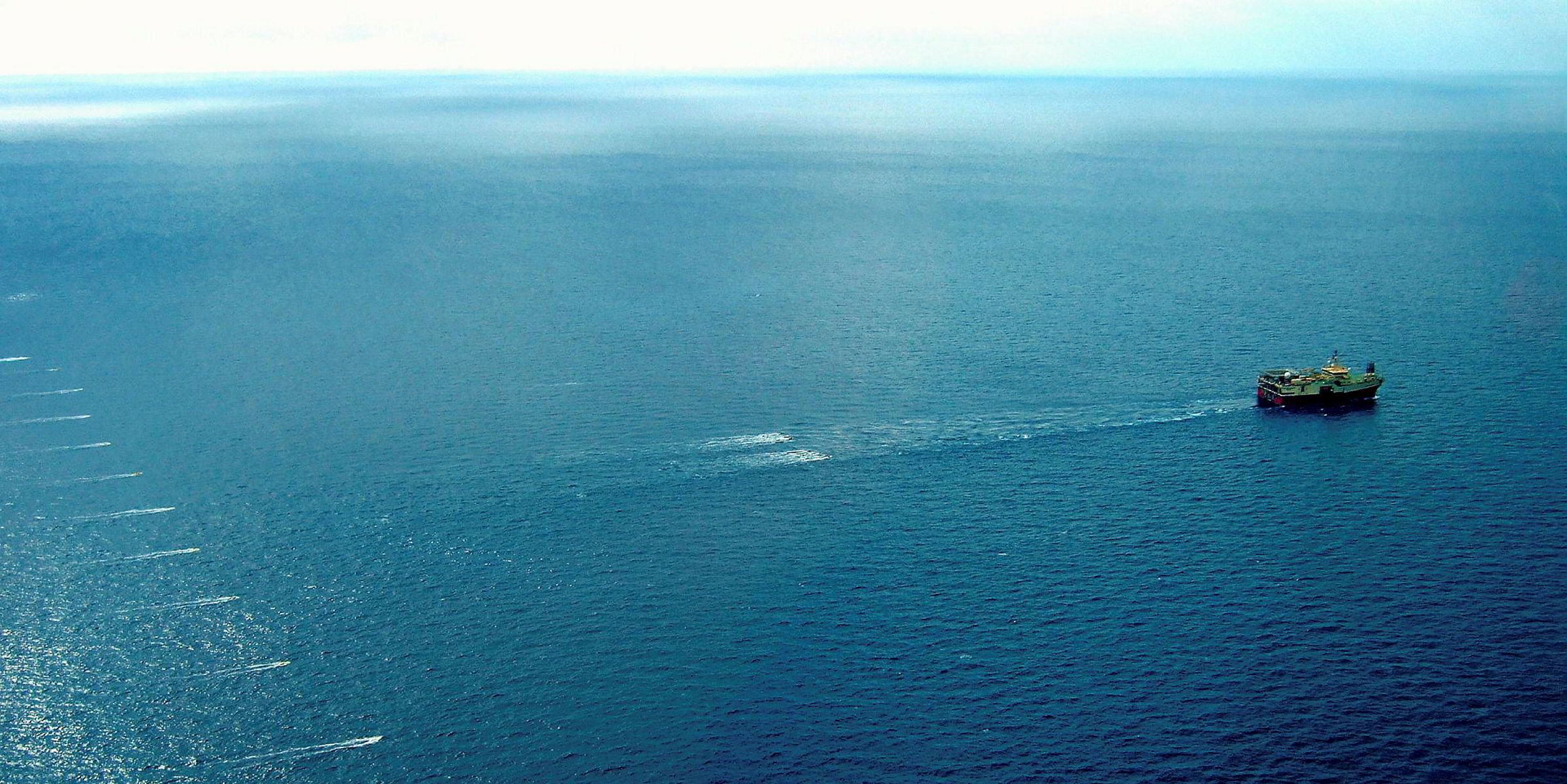
Segment Ebitda came in at $99.1m, down from $135m a year earlier.
The second-quarter result contributed to a $229m loss for the first half of the year, deeper than the $114m reported in the same period of 2019.
The slumping financial metrics for the company came as it navigated a market in which customer budgets received a wallop from the impact of the coronavirus.
PGS said it completed cold stacking, or lay-up, of three vessels and it is continuing to evaluate whether to idle more.
"The Covid-19 pandemic has caused widespread disruptions in the oil market and a significant reduction in energy companies’ 2020 budgets," Pedersen said.
Demand slump
"This has led to reduced demand for seismic data and deferral of seismic projects, requiring a rapid response from PGS to manage vessel supply and costs."
But, Pedersen pointed to a light at the end of the tunnel. Customers have told the company that their long-term exploration programmes remain intact, and that cutbacks during the pandemic represent deferrals rather than cancellations.
| Q2 2020 | Q2 2019 | 1H 2020 | 1H 2019 | |
| Segment revenue | $139m | $216m | $307m | $258m |
| As-reported revenue | $90.3m | $192m | $219m | $322m |
| Segment Ebitda | $99.1m | $135m | $178m | $202m |
| Net loss | $111m | $48.9m | $229m | $114m |
Energy companies are aiming to protect cash flow, PGS said.
Looking ahead, the outfit said it expects seismic activity — the leading edge of offshore oil exploration — to improve in 2021.
"The expected future recovery of the seismic industry is likely to be strengthened further by another round of industry capacity reductions and a pent-up exploration and production demand," the company said.
PGS reported a plunge in second-quarter operating expenses, which reached $39.6m after it reported $80.4m in the same period of 2019.
This was a result of cost-saving measures that included vessel stacking and staff cuts.
As TradeWinds has reported, the company has been working to reduce its officers by 40% and cut its annual gross cash cost run rate to $200m from $400m.
"In light of all the challenges we have faced this quarter, I am impressed with the exceptional efforts from all our employees," Pedersen said.
"We have been able to execute acquisition and imaging projects according to plan and our sales force has had a relentless drive to close sales, providing us with decent revenues in a very challenging environment."
Meanwhile, a unit of US banking giant Goldman Sachs filed papers with the Oslo Stock Exchange revealing that it controls a 13% stake in PGS.
Goldman Sachs Asset Management's more than 50.3m shares is worth about NOK 181m ($19.7m) at today's prices.
The bank appears to be new to the PGS shareholder roll. It did not appear among the top-20 largest shareholders in PGS' annual report in March.
At the time, Coltrane Asset Management was the largest shareholder with 52.1m shares equating to a 15.4% stake.
